Passing the CMA exam requires more than knowing the material — you have to also know how to think through CMA exam questions under pressure.
For many candidates, multiple-choice questions (MCQs) become the biggest hurdle. Between feeling the pressure of the timer and working your way through understanding the exam’s dense wording, it’s no wonder 50% of candidates fail their first attempt at the CMA exam.
But MCQs are a skill you can master with the right strategies and the right kind of practice.
In this article, you’ll learn the most effective techniques I teach CMA candidates to help them approach MCQs with confidence, accuracy, and speed.
Originally published in 2019, this article was updated and republished on December 12th, 2025.
CMA Exam Format
The CMA exam is divided into two parts, and candidates can choose whichever part they want to take first, as long as it’s within the scheduled CMA exam dates.
Each exam part includes 100 multiple-choice questions and a CMA exam essay part. The essay section includes two scenarios, each with four to six questions. However, candidates can only move on to the essay section if they score at least 50% on the MCQs.
All CMA test questions are computer-based. For MCQ this means selecting the correct answer, while the essay section is written using a word document program similar to Notepad.
For each MCQ, you are given a question and four options to choose from. You must read the question carefully before selecting your answer, but there are a few more things you can do to boost your chances of passing the exam.
Candidates must complete both Part One and Part Two in order to earn their designation, and each part is made up of different fundamental topics. Some content topics get more coverage than others, so let’s look at a quick breakdown:
In CMA Part One – Financial Planning, Performance, and Analytics, six core topics are covered:
- External Financial Reporting Decisions 15%
- Planning, Budgeting, and Forecasting 20%
- Performance Management 20%
- Cost Management 15%
- Internal Controls 15%
- Technology and Analytics 15%
In CMA Part Two – Strategic Financial Management, six additional core content topics are covered:
- Financial Statement Analysis – 20%
- Corporate Finance – 20%
- Business Decision Analysis – 25%
- Enterprise Risk Management – 10%
- Capital Investment Decisions – 10%
- Professional Ethics – 15%
Use Practice Tests to Prepare for the CMA Test Questions
One of the best ways to study for the CMA exam is to take a practice test, containing realistic CMA exam samples. Or better yet, retired CMA test questions.
CMA practice exams can help you get a much better feel for what CMA test questions are like, and where your strengths and weaknesses currently lie. Most high-quality CMA review courses offer CMA practice tests that you can use as practice.
One of the best ways to access CMA study materials like these is to take a review course that includes everything you need.
(Check out my Best CMA Review Course Comparison Guide to find a course that will fit your needs best.)
7 Strategies for Crushing CMA Multiple-Choice Questions
Here are seven of my top tips and strategies to apply when doing CMA practice exams with CMA test questions that will prepare you for exam day.
1. Analyze Every Question
One of the biggest mistakes candidates make when working through CMA test questions is that they don’t take the time to read the question correctly.
In order to answer questions effectively, you will need to break it down into relevant information and non-essential details. MCQs are made up of two parts:
- The stem, which identifies the actual question or problem, and
- Other key information to help you identify the best answer.
All other information is considered distractors that may sound plausible, but are in fact, incorrect.
I find it best to identify the stem question and separate the distracting information.
If it’s easier, write down the important information so you can use it to help you narrow down your potential answer choices.
2. Watch the Clock
Three hours may seem like a lot of time to answer 100 CMA multiple-choice questions, but it will fly by quickly.
It’s imperative that you put your time management skills to use, so you don’t run out of time.
Aim for 90 seconds per question, and don’t get hung up on questions that you feel totally stumped on. If you stick to this time frame, you should have 30 minutes at the end of your exam to review your answers or go back and complete the questions you missed before.
There is no better way to practice your time management skills than by using online CMA test banks or a solid CMA review course and timing yourself.
The key is not to let complicated questions slow you down. You do have the ability to skip ahead, so answer the easier ones first and then go back through the entire section and tackle the harder ones.
Remember, all questions carry the same weight in points, so you want to answer as many as possible before losing precious time. Trying to figure out one tough question may mean potentially missing out on the opportunity to answer easier ones where you could have quickly earned the point.
3. Be Mindful of Negatives
There is nothing more aggravating than negatively phrased sentences. More than any other question, ones featuring negative words make you second guess yourself.
You will absolutely find CMA test questions like these in both CMA test banks and on the actual exam. Three of the answers will be truer than the fourth, but the featured negative word(s) will make it stand out more.
Here is an example of a negatively worded MCQ:
Which of the following is not true in regards to the working capital method of financing international trade?
All of the following examples of financing international trade are true except…
Being aware of this will help you avoid falling for this sneaky tactic.
4. There Is Only One Right Answer
Speaking of answers that are “truer,” it is equally important to remember that there is always only ONE correct test question answer.
While some answers may appear to be true, there will only ever be one that is an entirely true statement. Weed away answer selections that are not wholly true, and this will help you make the right choice.
5. Make an Educated Guess
As I said earlier, you will never get negative points for choosing the wrong answer. If you find that you are running out of time, do your best to make an educated guess on all remaining questions.
More than anything, don’t let unfamiliar questions affect your confidence. You will, without a doubt, come across questions that feel entirely foreign to you.
For example, the ICMA includes 10 “test” questions in each exam that are not scored. These are completely new questions, and the reason they are not scored is that the ICMA wants to gather information on whether or not it is actually a good question. If results come back positively, these not-scored test questions will be added to future exams as actual marked questions.
Like I said above, make your best guess and move on.
6. Learn From Your Mistakes
Statistics show that 50% of people don’t pass the CMA exam the first time. If you’re part of this group, it means you got too many CMA test questions wrong. It also means you’re in good company, and you should feel motivated to study hard for round two.
Part of taking the CMA exam again (and passing this time) is evaluating what you did right versus what you did wrong.
Figure out where you went wrong and develop a strategy to address your mistakes.
Now that you’re familiar with the format, you’ll discover better tactics for achieving success in round two.
7. Review, Correct, and Go Back
There’s a massive benefit to meticulously analyzing practice tests and practice test questions.
Don’t simply “get it right” and move on — this is especially true for the more challenging MCQs.
The highest value you can get out of practice CMA test questions is in reviewing what you got wrong as well as what you got right.
Doing so well helps you uncover patterns about the way you think that will help you improve.
By comparing your right answers to your incorrect ones, you can learn about where your mind goes and where it doesn’t when tackling CMA test questions. This allows you to focus on your blind spots and ensure you do better at the next pass.
8. Use the Prometric Tutorial Time Wisely
Before your exam begins, you’ll get a 15-minute Prometric tutorial that shows you how to use the testing software.
Use a few minutes of this time to do a quick “brain dump” of your formulas onto the scratch paper provided. Write them out in a clean, organized way so you can reference them throughout the exam.
This becomes your own mini formula guide — incredibly helpful when the timer is running and you need to think fast.
9. Take a Prometric Test Drive
If you’ve never taken a computer-based professional exam before, or if testing environments make you anxious, I would definitely recommend you take a Prometric test drive.
This means you can go to the testing center ahead of time, check in, complete a practice run, and familiarize yourself with the exact process you’ll experience on exam day. This removes a huge amount of stress.
Inside the 16-Week Accelerator Program, you’ll learn how to schedule one and get the most out of your Prometric test drive.
10. Use a High-Quality Test Bank
One of the strongest predictors of success on the CMA exam is how much high-quality practice you complete beforehand.
A mega test bank with thousands of MCQs exposes you to every question type, difficulty level, and tricky phrasing pattern the ICMA loves to use. The more variations you see, the more confident and prepared you’ll feel on exam day.
CMA Exam Academy’s comprehensive test bank is built for this exact purpose, with over 4,000 multiple-choice questions, 27 essay simulations, and a mock exam mode.
Your Next Step for Mastering CMA Test Questions
You’ve mastered the MCQ portion of the exam – now what?
Well, now it’s time to put all that mastery to work and register for the exam in an upcoming CMA exam testing window.
Earning your Certified Management Accounting (CMA) certification, or any professional certification for that matter, is meant to be difficult. You have to work hard to learn the material and be able to apply it in real situations in your CMA career.
To give yourself the best chance of passing, check out my 16-week CMA Accelerator, which provides access to one-on-one coaching and a step-by-step study plan, including a large number of practice exams.
If you are planning a career in financial accounting and strategic management, then becoming a CMA may be the right path. Just remember it will require a lot of studying, but I promise you it is worth it.
Do you have more burning questions about MCQ strategies and exam hacks? Don’t hesitate to drop them in the comment section below.
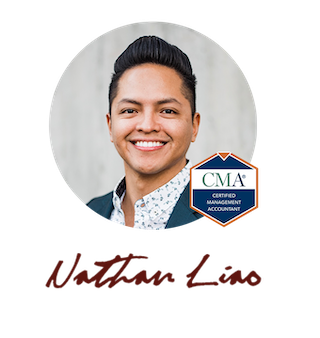
Hi, I’m Nathan Liao (aka the CMA Coach)! For the last 10 years, over 82,000 accounting and finance pros came knocking at my door seeking guidance and help. If you’re also aiming to conquer the CMA exam on your very first try—without wasting away time or money—you’ve found your ultimate guide. Dive in deeper to discover more about me and the dedicated team that powers CMA Exam Academy. Click here and let’s embark on this journey together!

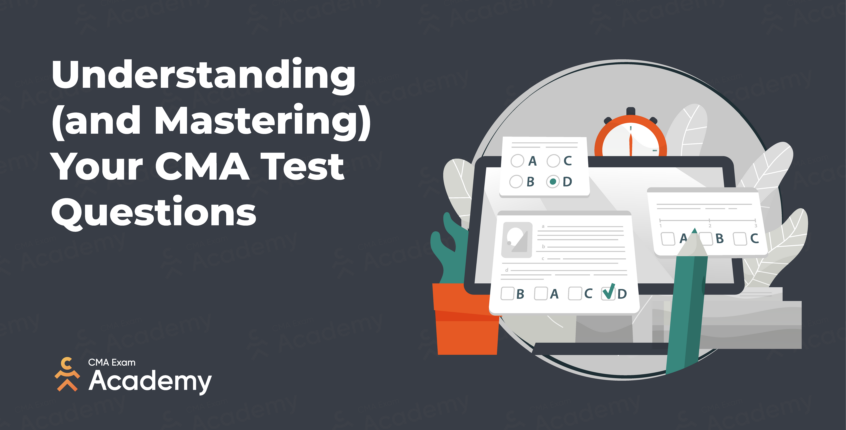
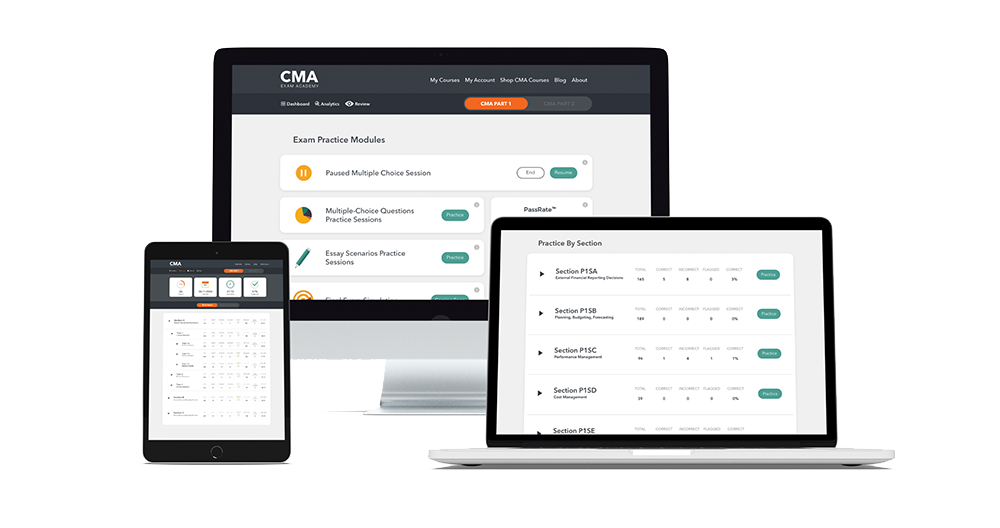
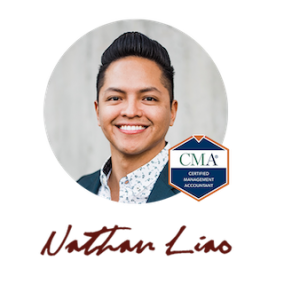
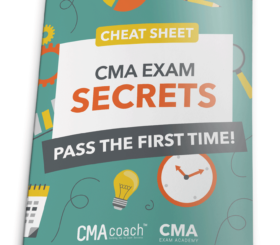
13 Comments on “How to Pass the CMA Exam’s Multiple Choice Questions”
hi
please, how can I buy online from your website? I need just MCQs 2023 or 2024.
best regards
Hi Mohammed,
Thank you for reaching out.
Here is the link for our Test Bank combo below for your convenience: https://cmaexamacademy.com/product/cma-mcq-mastery-combo-parts-one-two/
Hi Mr. Nathan Liao,
Good day.
I recently passed the part 1 with a score of 390, I am now waiting for my part 2 results, fortunately I made it to the essay portion.
I would like to have a clarification in regards to those 10 questions that are unscored, does that mean that even if we have answered correctly or not we will not have any points or bearing on that? If not, would that mean that the actual MCQs is over 90 questions, so in order to make it to the essay part we would need a correct answer of 45?
Thank you!
John Paul S. Gonzales
Hi John,
Congrats on finishing your exam. It’s a very good sign that you made it to the essay section.
The 10 multiple-choice questions that are not graded are sample questions being tested for future exams and don’t impact your exam score. How you answer the remaining 90 impacts 75% of your score.
If you have any other questions, don’t hesitate to hit reply.
Nathan
Hi.
I am currently an undergraduate student pursuing my CMA.
I am using the Wiley material and i seem to be understanding the study material well. Unfortunately, when i attempt the MCQs, i am unable to understand them. How do I go about this ?
Hi Medha,
Have you reached out to Wiley by any chance for customer support? They’ll be able to help answer your question as it relates to their study material.
Pingback: The Best CMA Study Materials, Strategies, and Exam Hacks
Pingback: CMA Exam Cost - Weighing the Financial and Time Investment
Hi I I just wanted to know will the same questions will be asked , questions i have been practicing from Gleim online?
Hi Patterson – although similar because they cover the same subject matter, the questions on the CMA exams will NOT be the same as the questions from your test bank. No one outside of the ICMA knows the actual questions that candidates will be tested on in the exam.
Pingback: Taking the CMA Exam In 2015? Here's Your Roadmap
Pingback: How to Become a CMA in Just Over 6 Months - CMA Exam Academy
Pingback: How Hard is the CMA Exam? Understanding CMA Exam Difficulty - CMA Exam Academy